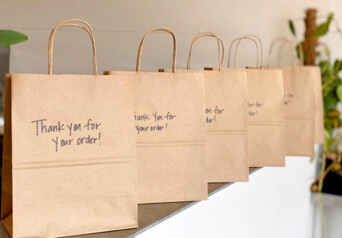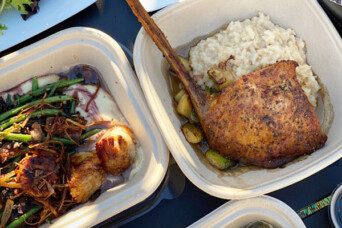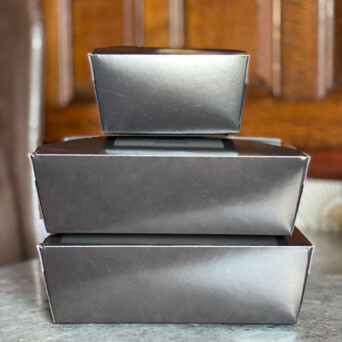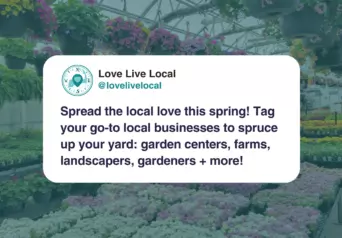Small Business Advocacy A new show of corporate power threatens the survival of our independent restaurants
Third-party food delivery apps have high fees that hurt local Cape Cod restaurants. Consumers can support local businesses by ordering directly from them or using a local delivery service.

- Post Date
- Tue, Jun 1
- Small Business Advocacy
Local restaurants have been fending off large corporate competitors with deep pockets for decades, but a new show of corporate power fueled by Wall Street investors threatens their continued existence – third party delivery apps that rely on anti-competitive and predatory tactics to gain market share and take whatever they can from the bottom line of local restaurants.
Running an independent restaurant is a grueling and costly business; the hours are long, competition is fierce, and margins are razor thin. But for those who run and work in a restaurant, it is their way of adding vibrancy to and having a meaningful connection with their community.
As dining out became more and more popular in the second half of the twentieth century, large corporate entities sought to capitalize on this trend by proliferating national chain and fast-food restaurants in almost every community across the United States. Some independently owned restaurants lost that battle against cheap prices and government policies that favored the “big guys,” but in many places like Cape Cod, locally owned restaurants have been able to hold their own, as locals prefer to patronize restaurants owned and staffed by their friends, and tourists seek to taste the local flavor spending their vacations experiencing something unique.
But March 2020 brought something entirely new to their doors, as the coronavirus swept across America and restaurants were ordered closed or to operate at a reduced capacity. The business plan of welcoming as many people as possible into a restaurant and wining and dining them with flourish was completely ripped to shreds, and restaurants were left scrambling, struggling to figure out how to keep the lights on and continue to reach their customers. For many of them, offering take-out and food delivery was their only way of making any sales.
On the surface, a third-party food delivery service seems like a great idea. An independent restaurant on its own typically cannot afford to offer delivery of its product to its customers.

So, a company comes along and offers to provide the service for them. And they work together to connect customers with their delicious dinners in an affordable, seamless, and efficient way.
Unfortunately, in the case of the dominant third-party delivery app services – DoorDash, Grubhub and Uber Eats – this is not how the relationship typically works out.
According to a report by the American Economic Liberties Project, “restaurants are increasingly struggling to fend off this deep pocketed clique of tech companies determined to use them purely as vehicles for extracting fees and consumer data, which together with an unprecedented shutdown of dining rooms now threaten their industry with extinction.”
The report goes on to say that the three big companies, (who own approximately 95% of the market share) “instead of competing to serve customers and restaurants, use Wall Street money to accumulate market power, raise barriers to entry, and then merge with each other and set up regional monopolies.” The monopoly power gained by these methods means they have extraordinarily little competition and enables DoorDash, Grubhub and Uber Eats to control the marketplace and set virtually any price they want for their services.
Until COVID-19 took over our lives and made such an impact on our livelihoods, restaurants did not really feel much need to engage with third party delivery apps – take-out and delivery service was not where many of them were making their money or meeting customer demand. But in 2020, as many Americans spent much more time at home, sales for meal delivery services grew 36% year-over-year.
There is no doubt that much of that increase in consumer demand for food delivery service was driven by their desire to support small restaurants as they faced what would be one of the most challenging times in their history. The apps themselves created cleverly run marketing campaigns urging people to use their services in order to help local restaurants – and covered up their predatory, deceptive and problematic business practices that in fact do little but hurt independently owned restaurants.
Even before the pandemic, third-party delivery apps were charging exorbitant fees for their services, most of the time 30 percent or more of the cost of the order. In a business where profit margins are typically somewhere between 3-6 percent, this is simply untenable for most local restaurants.
The realities of the COVID pandemic pushed many restaurants like Old King’s Coffeehouse in West Yarmouth, to participate on these platforms. Co-owner Mark Corliss said even though the costs were very prohibitive and could potentially hurt the businesses’ bottom line he felt they “didn’t have a choice if [they] wanted to be able to reach our customers in the middle of all of this.”
For many restaurants who have made the deliberate decision not to engage with DoorDash, GrubHub and Uber Eats, they are still falling prey to their predatory tactics, as the companies have pirated their menus and put them on their platforms without permission; and often the menus, prices and hours of operation listed are out of date. What’s more the “takeout” or “delivery” button displayed on the official Google Business listing of a small restaurant will lead the user directly to Grubhub, with each click resulting in a fee for Google.

Ask any number of restaurants on Cape Cod, and they will share a nightmare of a story about a delivery driver showing up to their eatery for an order they had no idea was placed, have not fulfilled, and have no confidence they will get paid for if they do fulfill it. And who do you think gets the bad review on Google and Yelp if the customer experience is not satisfactory? The local restaurant who never wanted to engage with the customer in this way to begin with.
Although it seems like a bad business strategy to alienate and upset the very people on whom these delivery services are relying to pad their bottom lines, according to a Washington Post investigation “the scary truth is that it may not matter to the delivery apps whether individual independent restaurants survive,” as the companies start setting up their own so-called “ghost” kitchens where “anonymous cooks prepare meals for an array of fake restaurants exclusively available on the delivery apps.” And they know who eats what, when and where since they’ve been gathering all of this data from the orders customers have made to independent restaurants.
The Massachusetts State Legislature thought these predatory practices were so egregious they passed a law that restricts third-party delivery services use of restaurant intellectual property at the end of 2020 and they placed a temporary 15% cap on their delivery fees at the beginning of 2021.
That temporary cap end on June 15, 2021 when the governor’s emergency order expires. And according to John Schall, owner of El Jefe in Boston, he has been informed by his third-party delivery provider, at that time his rate will increase to 38%.
There are many actions to be taken to reign in this show of corporate power. The Massachusetts Attorney General’s office can launch an investigation into these companies for violations of Massachusetts’ consumer protection laws and for unfair and deceptive business practices. The Federal government’s Antitrust Division can and should ensure that these three companies do not get any larger by banning any further mergers and acquisitions, which have already reduced meaningful competition in the industry.
Perhaps most urgently, lawmakers on Beacon Hill can make a fee cap permanent by passing legislation, and for their part, consumers can support restaurants by ordering directly from them whenever possible.
The reality is DoorDash, GrubHub and Uber Eats are not uplifting local businesses or the community now or at any point during the pandemic, and have no intention of doing so in the future. They are simply trying to extract as much wealth from independent restaurants as they can to enrich their shareholders. The impact of this will be felt at the individual business level, but it will impact the local economy overall. Restaurants are economic drivers in this region as employers, taxpayers, and supporters of other local businesses. They are also a huge part of what makes Cape Cod so special and protecting their viability from corporate power is something in which we should all take part.
This article (which has been updated in 2023) was part of a year-long investigative series performed by Amanda Converse in 2021 that explored how corporate concentration has affected various industries across the country and what impact that can and does have on Cape Cod’s local economy. The work was supported by the 2021 Mission Supporters: Cape Cod 5, Nauset Disposal, Mid-Cape Home Center, and Duffy Health Center.
Related articles
- Post Date
- Tue, Apr 2
- Small Business Advocacy
- Post Date
- Tue, Mar 5
- Small Business Advocacy
